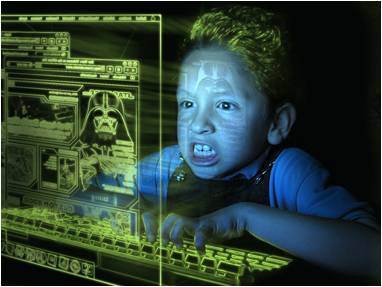Condensing the complexity of digital literacies is always a challenge. At the recent Student Staff Conference on Future Learning, I reduced them to professional practice with social media and how SM might best support teaching and learning. SM and the use of mobile technology has relevance for learning design. It can be disconcerting when an audience appears engrossed in their digital devices but banning them is not the answer. Finding ways to maintain engagement with the subject matter while constructing an agreed code of conduct is more realistic.
This short video on the potential of digital technologies for education is a useful introduction to the concept of digital natives and immigrants. First outlined by Prensky in 2001, the digital dichotomy is now acknowledged as more complex than division by age and more related to use e.g. the CIBER report on the research skills of young people and Carr’s polemic Is Google Making us Stupid.
A decade after Prensky, learning design has shifted from constructivism to connectivism, with both support and critique, but also some consensus. When it comes to technologies, education is less about the tools and more how they’re used. With regard to social media the debate includes appropriate and inappropriate behaviours, in particular in lectures and seminars. Wherever learning design incorporates ‘real-time’ collaboration and/or interaction via social media it raises issues like shopping on eBay or personal tweeting irrelevant to the subject. This is part of the wider digital debate around personal versus public online identities, which in itself is only one component of digital literacies. An agreed code of conduct may be one way forward. Most discussion forums now include guidelines for appropriate use and behaviour and finding consensus on the use of mobile technology in teaching and learning is no different to agreeing capital letters equate to shouting and personal abuse will not be tolerated.
Digitally literacies are embedded in individual personalities making it hard to pull out a one size fits all model of use. New technologies amplify the affordances of traditional tones like pen and paper. We all doodle in learning situations. Doodling in itself can be a form of reflective practice. Today there are more choices on the formats that doodling can take and learning design learning needs to take the ever changing nature of ways of being, seeing and doing into account.
The design of learning is a continually evolving science, not least because space between users and non-users still exists. Replication and reinforcement of digital divides is less visible, but in the push to use social media to empower student voices and flip the classroom, technology remains exclusive. In an increasingly digital society enabling/disabling binaries are more relevant than ever. The potential for digital exclusion should not be forgotten.

